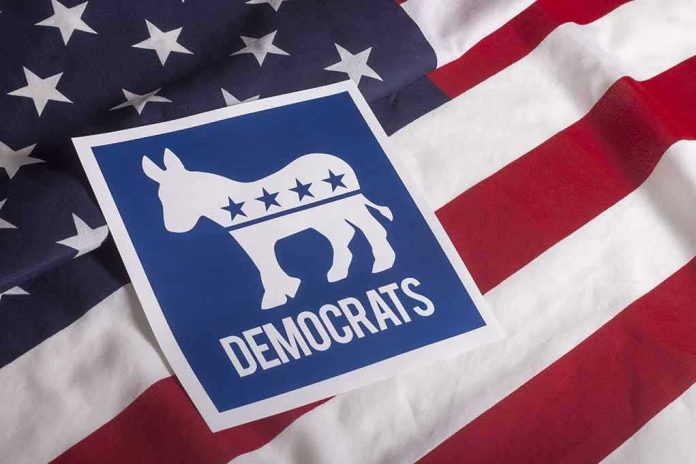
Democrats are blocking the release of Epstein files to keep the issue alive longer, igniting a partisan firestorm.
Story Highlights
- Republicans accuse Democrats of stalling the fast-track vote on Epstein documents.
- Democrats claim the delay is procedural, ensuring thorough investigation.
- The conflict underscores tension over transparency and partisanship.
- The outcome could set a precedent for handling high-profile investigations.
Republicans Demand Transparency
On September 10, 2025, Republican members of the House Financial Services Committee pushed for a fast-track vote to release documents linked to Jeffrey Epstein’s financial activities, which involve major banks like JPMorgan Chase.
They argue that swift transparency is essential to maintain public trust. Yet, Democrats blocked the vote, citing the importance of a procedural review to ensure legal compliance.
The divide highlights a broader conflict within the committee, with Republicans framing the delay as a political maneuver by Democrats to keep the Epstein controversy in the public eye. Democrats, on the other hand, insist that rushing the process could undermine the investigation’s integrity.
Democratic Concerns Over Procedural Integrity
Democrats on the House Financial Services Committee, led by Chairwoman Maxine Waters, argue that their actions are rooted in a need for thorough investigation and adherence to legal protocols.
They emphasize that ensuring all aspects of the investigation are legally sound is critical to maintaining the integrity of the committee’s work.
In a statement, Waters explained, “We are committed to a thorough and legally sound investigation. Rushing the process could undermine the integrity of our work.” Her stance underscores the Democrats’ focus on due process, despite allegations that their actions are politically motivated.
Implications for Financial and Political Sectors
This ongoing dispute has significant implications for both the financial and political sectors. Financial institutions, particularly those implicated in Epstein’s activities, face reputational risks amid heightened scrutiny.
The delay in document release fuels public skepticism and political polarization, potentially affecting investor confidence.
The broader implications of this battle reflect on how Congress manages high-profile financial investigations. The outcome could set a precedent for balancing transparency and procedural integrity, influencing future congressional inquiries.
Sources:
Democrats Block GOP Efforts to Fast-Track Vote on Epstein Files, Republicans Charge







